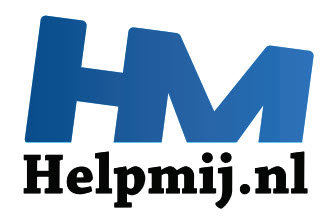Oud verhaal
Is Universal Music's Copy Protection a Joke?
Crack Universal Music's CD copy protection, weeknights at 7 p.m. Eastern on 'The Screen Savers.'
Also airs at 10 p.m., 1 a.m., 7:30 a.m., 11:30 a.m. Eastern.
By Patrick Norton
Earlier this month, Universal Music introduced copy protection for its line of audio CDs using Midbar Tech's Cactus Data Shield (CDS). The first disc released with Midbar's protection was "More Fast and Furious: Music From and Inspired by the Motion Picture 'The Fast and the Furious.'" According to stories posted online, Universal plans to copy protect its entire lineup of CDs.
The announcement that Universal will copy protect its CDs -- ostensibly to prevent users from ripping MP3s for trade online -- came the day before the launch of pressplay, Universal's (and Sony's) subscription outlet for digital audio.
With a purchased copy of the "More Music" CD, I discovered that it is possible to copy the disc and burn MP3s from it using software freely available for download online.
Can't see the copy protection
With the copy protection working, a Windows PC shows the files and automatically runs the CactusPJ audio player that comes with the CD. (The CactusPJ player features difficult-to-see buttons and needs a second window to show track info. It also shows up as possible spyware on Ad-aware 5.6.) In theory, it's the only way to play audio from a CDS-protected disc on a Windows machine. Without significant effort, you can't play this disc with any other player, nor can you rip it to MP3 audio -- in theory.
However, a number of computer systems with DVD drives don't "see" the copy-protected version of the disc. The systems that didn't see the copy-protected files -- files we understand are installed by Midbar Tech's Cactus Data Shield -- just showed a normal audio CD.
On the computers where the copy protection didn't work, you can see all 14 CDA tracks on "More Fast and Furious." While Track 1 wouldn't play (using WinAMP, WMP, MusicMatch, and so on), the rest of the tracks play normally. More importantly, all the tracks were rippable to MP3 format (anyone want to create a CDDB entry for this disc?).
Why didn't the copy protection work?
It turns out that the DVD drives in the systems we tested see through Midbar Tech's copy protection. The drives don't see the files CDS installs on the audio CD, nor are they confused by the table of contents tweaking done by the CDS.
We tested the DVD drive, an NEC DV-5700A, on a number of different Windows 98 and XP systems. None of the machines had any trouble seeing or ripping all the tracks, or playing tracks 2 through 14. NEC doesn't normally sell retail, but it supplies DVD drives to Dell. In fact, all of the Dell systems we tested saw through the copy protection.
And, of course, none of them can play the first track on the CD, no matter what program we tried. Also, you can't find the CactusPJ player on the audio CD to play the tracks the way Universal prefers.
This is copy protection? Here's a better question: Are all Dell owners with DVD drives who buy CDS copy-protected discs in violation of the Digital Millennium Copyright Act? Perhaps, if they purchase the NEC DVD drive just for the purpose of circumventing the copy protection.
We've contacted Midbar Tech, the makers of the Cactus Data Shield, and Universal Music. We're waiting to hear back from Midbar Tech. Universal Music's offices are closed until January 2 for the holidays. I've already had a phone call from a group of audio enthusiasts that is considering a class action suit against Universal Music.
Originally posted December 28, 2001
http://www.google.com/search?hl=nl&ie=ISO-8859-1&q=midbar+tech+player&btnG=Google+zoeken&lr=
http://www.google.com/search?hl=nl&ie=ISO-8859-1&q=midbar+tech+player&btnG=Google+zoeken&lr=